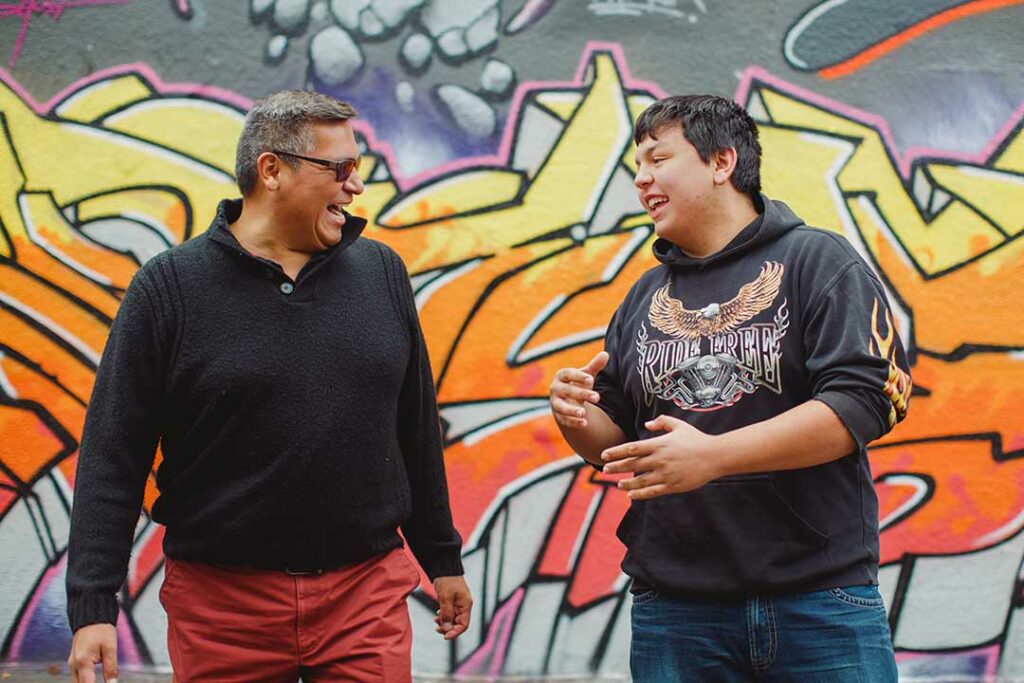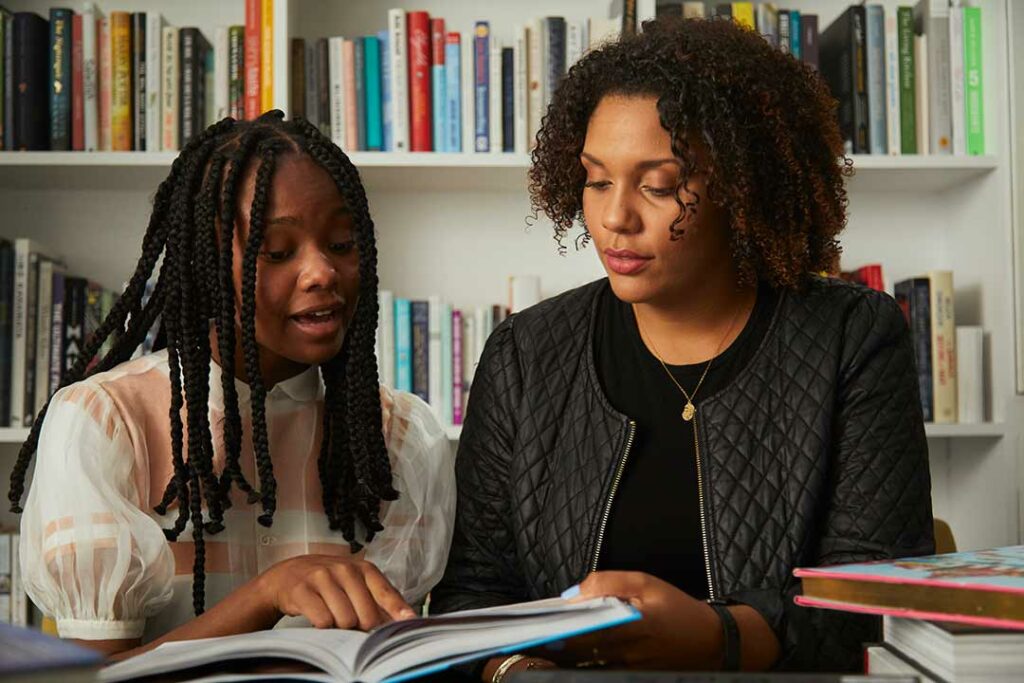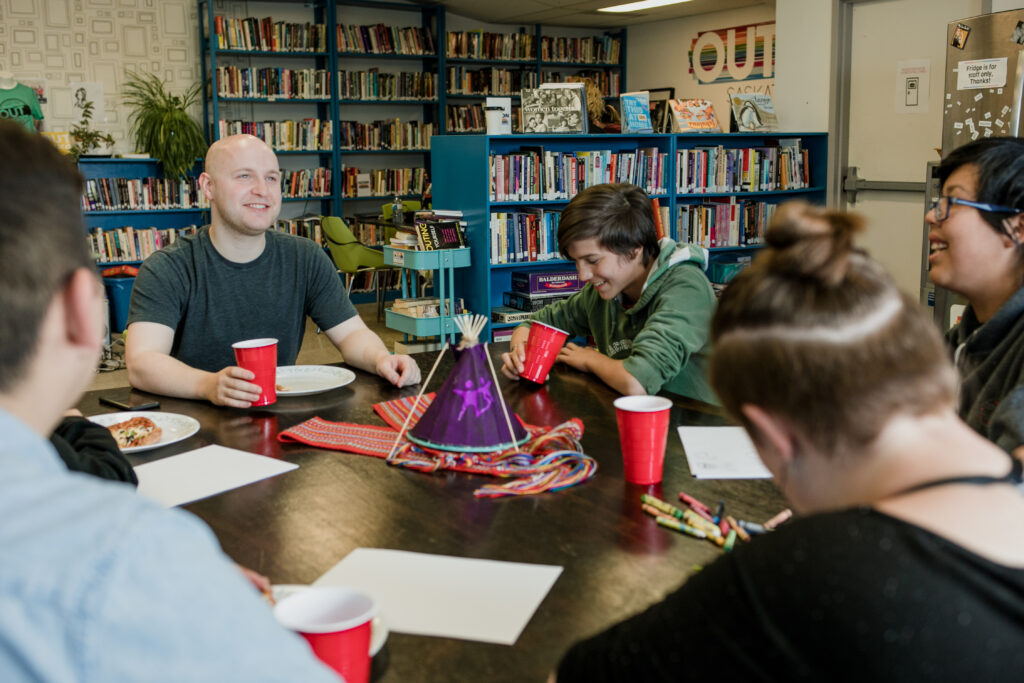
CELEBRATE BIG BROTHERS BIG SISTERS MONTH WITH BBBSOC!
Join Big Brothers Big Sisters of Oxford County in recognizing Big Brothers Big Sisters Month. Together, we will celebrate mentorship and raise awareness about the critical need for mentors.
Each September, we proudly celebrate Big Brothers Big Sisters Month across Canada, recognizing Big Brothers Big Sisters Day on September 18th. For over a century, our mentorship programs have inspired thousands of Canadians to help youth realize their potential. Big Brothers Big Sisters celebrates 55 years of mentoring in Oxford County this year. Since 1969, collectively, BBBS Oxford has been making a positive difference in the lives of local youth by developing and implementing a wide range of mentoring programs.
HELP BBBS SAY YES!
BBBSOC is witnessing an unprecedented surge in youth enrollment in our programs and a growing number of Adverse Childhood Experiences (ACEs) among young people. Statistics underscore the significant impact that one additional supportive developmental relationship can have on a child’s life, and help mitigate the effects of ACEs.
The demand for BBBS services has surged by over 200% from the previous year. We are seeing increasing numbers of young people and their caregivers seeking support. Unfortunately, volunteer enrollment has not kept pace and as an agency that does not receive ongoing government funding, relying on grants, fundraising, sponsorship, and donors, our funding is not balancing with the increase in demand for our free mentoring programs.
In Oxford County, approximately 150 young people are waiting to be matched with a mentor, not including the youth enrolled through our school-based programs like In-School and Literacy Mentoring. In as little as one hour a week, you can make a lasting impact by igniting a young person’s potential in your community.
MENTORSHIP EQUALS
Mentorship is about connection. It’s about consistency and building healthy relationships that last. Mentorship is about helping each other learn and grow and find magic within ourselves to unlock our full potential. If you are a mentor, the rewards for you are endless. And for your mentee, the benefits are measurable.
Now, we have the scientific research to explain both why mentorship works, and how significantly it truly does change lives.
MENTORSHIP = RESILIENCE
When you mentor a young person, you’re providing a stable, healthy, committed relationship with an adult. According to the research, this type of relationship can protect a child from the effects of toxic stress experienced when living with childhood adversities. Building resilience.
Neuroscience tells us that these nurturing, caring relationships help buffer the impact of adversities on a child’s developing brain. It also tells us that resilient children and youth grow to be happier, healthier adults. So when you become a mentor, what you’re really doing is helping a child access their resilience, directly improving their life.
According to the Center on the Developing Child at Harvard University, you’re also helping prevent negative health complications in adulthood such depression, anxiety, violent behaviors and substance problems.
Measurably, increased resilience means improved outcomes in each of the following categories:
1.) Social Emotional Competence, 2.) Mental Health & Wellbeing, and 3.) Educational Engagement & Employment Readiness.
When you become a mentor, you’re helping with each of these.
 MENTORSHIP = SOCIAL EMOTIONAL COMPETENCE
MENTORSHIP = SOCIAL EMOTIONAL COMPETENCE
Resilience = Relationship Skills:
Mentorship helps a young person communicate clearly, listen well, cooperate with others, resist inappropriate social pressure, negotiate conflict constructively, and seek and offer help when needed.
Resilience = Social Awareness:
Your support will help youth understand the perspectives of others and empathize with them, including those from diverse backgrounds and cultures.
Resilience = Responsible Decision Making:
Mentorship means youth make constructive choices about personal behavior and social interactions based on ethical standards, safety, and social norms.
Resilience = Self Management:
You’re helping a young person effectively manage stress, control impulses, and motivate themselves to set and achieve goals.
Resilience = Self-Awareness:
A more resilient young person knows more about their strengths and limitations.

MENTORSHIP = MENTAL HEALTH + WELLBEING
Resilience = Positive Identity:
You can help a young person believe in their own self-worth, with a well-grounded sense of confidence, optimism, and a “growth mindset.”
Resilience = Mental Wellness:
You’re helping youth discover a sense of belonging, meaning, and connection.
Resilience = Social Inclusion and Empowerment:
Mentorship ensures your mentee feels connected, valued, safe and respected by the community.

MENTORSHIP = EDUCATIONAL ENGAGEMENT + EMPLOYMENT READINESS
Resilience = School Connectedness:
When a young person becomes more resilient, they become more engaged at school, gaining a more positive attitude and behaviours in their learning environments.
Resilience = Commitment to Learning:
Your mentorship helps a young person understand the lasting importance of learning and build a belief in their own abilities.
Resilience = Enhance Constructive Use of Time:
You are providing opportunities — outside of school — to learn and develop new skills and interests with others.

THE DATA
The science tells us that youth who receive mentoring are:
60% more likely to report feeling consistently happy and 45% more likely to report feeling consistently confident 1
50% more likely to have a strong social network 1
Our programs work! Recent research confirms that youth’s needs are being met right now:
72% of Mentees reported that their Mentor helped them get things done 2
85% of Mentees reported that their Mentor listened to their ideas and took them seriously 2
The research is in. The math makes sense. Mentorship = ? The only thing missing from this equation is YOU.
1. Data from a pro-bono study conducted by the Boston Consulting Group in 2013
2. Data from 2021 National evaluations
3. Mentoring Relationships = Developmental Relationships. Source: Search Institute – Developmental Relationships
